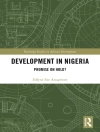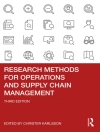The field of proteomics has developed rapidly over the past decade nurturing the need for a detailed introduction to the various informatics topics that underpin the main liquid chromatography tandem mass spectrometry (LC-MS/MS) protocols used for protein identification and quantitation. Proteins are a key component of any biological system, and monitoring proteins using LC-MS/MS proteomics is becoming commonplace in a wide range of biological research areas. However, many researchers treat proteomics software tools as a black box, drawing conclusions from the output of such tools without considering the nuances and limitations of the algorithms on which such software is based. This book seeks to address this situation by bringing together world experts to provide clear explanations of the key algorithms, workflows and analysis frameworks, so that users of proteomics data can be confident that they are using appropriate tools in suitable ways.
Inhaltsverzeichnis
Introduction to Proteome Informatics;
De Novo Sequencing;
Peptide-Spectrum Matching;
PSM Scoring and Validation;
Protein Grouping;
Identification and Localisation of Post Translational Modifications;
Algorithms for MS1-Based Quantitation;
Algorithms for MS2-Based Quantitation;
Informatics Solutions for Selected Reaction Monitoring;
Data Analysis for Data Independent Acquisition;
Mining Proteomics Repositories;
Data Formats of the Proteomics Standards Initiative;
Open MS;
Using Galaxy for Proteomics;
R for Proteomics;
Proteogenomics: Proteomics for Genome Annotation;
Proteomics Informed by Transcriptomics;
Subject Index
Über den Autor
Conrad Bessant is Professor of Bioinformatics at Queen Mary University of London. He has particular interests in proteomics, software development and machine learning and is striving to ensure that everyone using proteomics data can access the latest analysis methods and knows how to use them in the most effective way.












